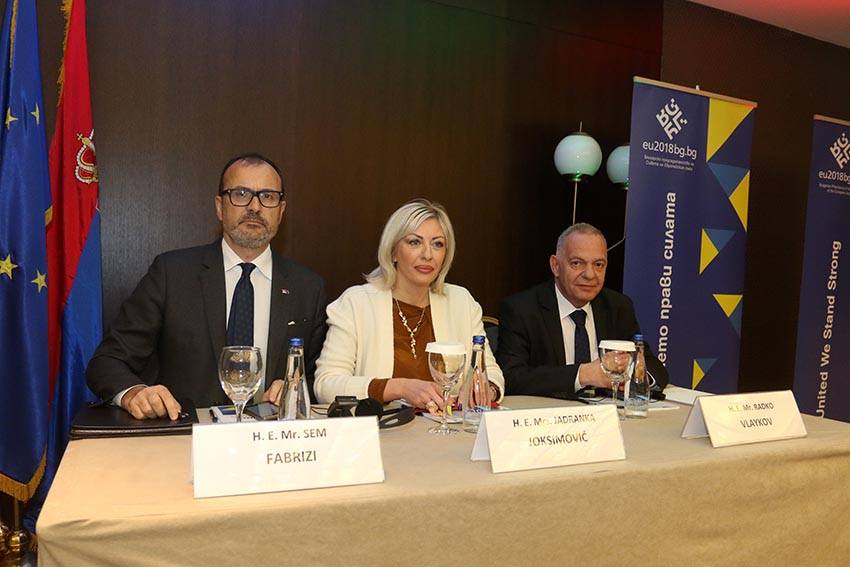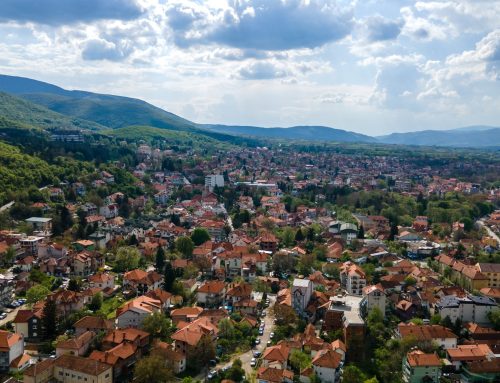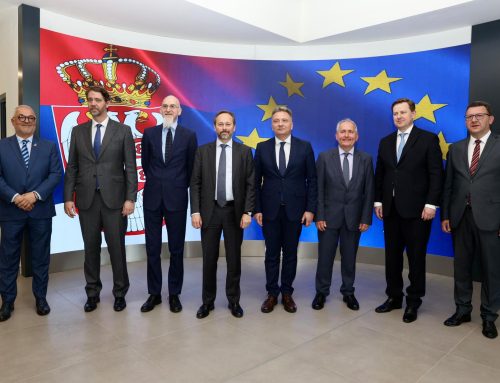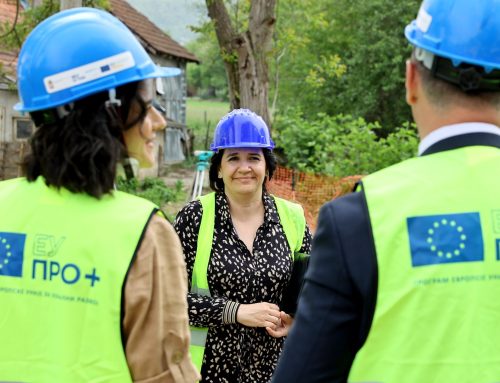Bulgarian Ambassador to Serbia Radko Vlajkov called on Serbian citizens to support the Government in its reform implementation efforts and the EU integration path, the way the EU does. 2018 offers a unique opportunity for the Western Balkans to come into focus of the European agenda and advance toward EU membership.
“Serbs can be strong when working toward the same goal. I am certain that once the politicians and citizens agree on the EU as a common goal, the membership itself will come more easily. Be united and strong,” said Bulgarian Ambassador.
Vlajkov said that Bulgarian Government invested a great deal of effort to convince the EU that it should remain focused on the Western Balkans, describing the effort as successful.
“We have been successful in attaining this, rather important, goal of putting the issue of the Western Balkans high at the EU agenda,” Vlajkov said and stressed that the European perspective and connectivity of the Western Balkans is among priorities of Bulgarian EU Presidency.
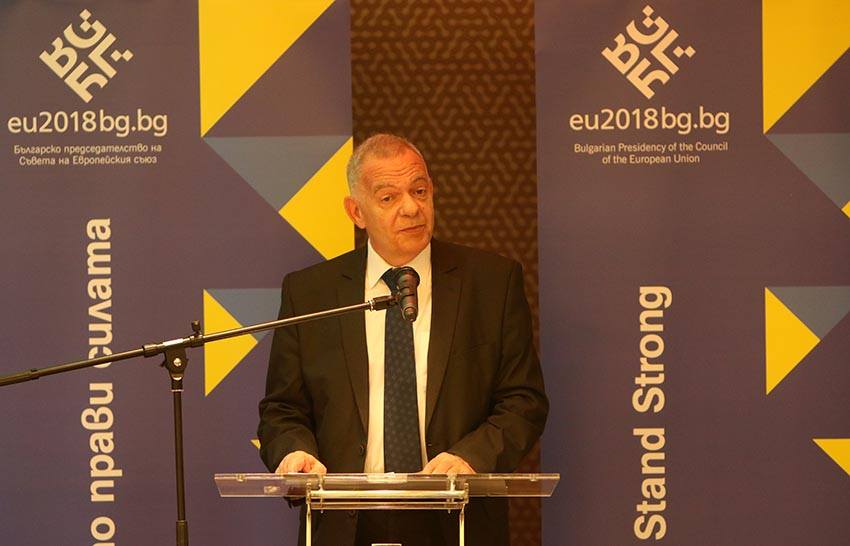
Antonio Ahel ATA IMAGES
He recalled that in the past decade the EU had been going through economic, financial and migrant crisis and added that the Union had improved its economic perspective and could now turn to the Western Balkans.
The EU-Western Balkans summit, scheduled for 17 May, is among major EU enlargement-related events on the Bulgarian Presidency agenda – Vlajkov said and added that he expected Serbian President Aleksandar Vucic to take part in the summit.
Among the priorities are the future of Europe and youth, economic growth and social cohesion, and getting ready for the new digitization reality.
Also, one of the priorities concerns security and stability of a strong and united Europe, Vlajkov said and added that the aftermath of migrant crisis should be dealt with and solutions acceptable for all countries agreed upon.
Vlajkov said that Europe and Europeans needed more security, stability and solidarity.
“We should achieve a strong, digitized and united Europe through consensus, competitiveness and cohesion,” Vlajkov said.
Fabrizi: Intense six months for the revitalisation of enlargement agenda
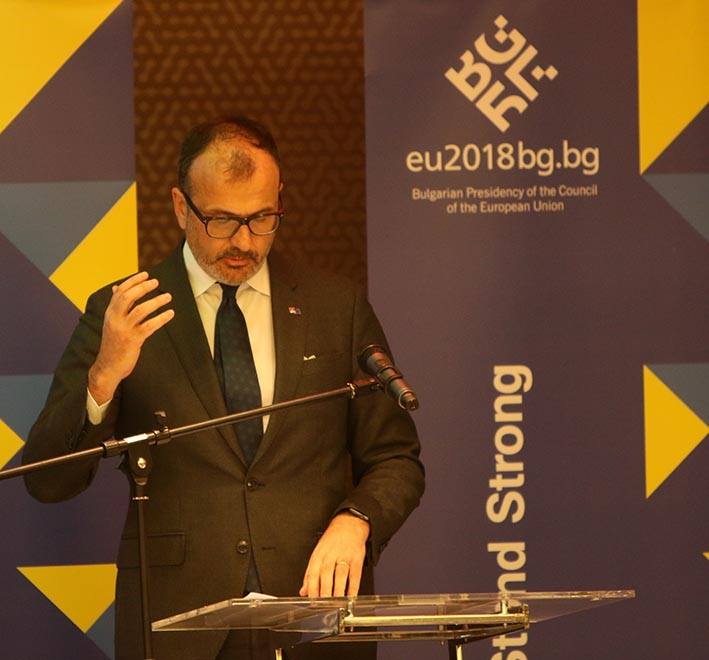
Antonio Ahel ATA IMAGES
Head of the EU Delegation to Serbia Sem Fabrizi said that 2018 would offer a unique opportunity for the Western Balkans to make “irreversible steps” toward European integration.
“I am confident that Bulgaria will achieve concrete results during its Presidency, and first and foremost for the Western Balkans – one of the four main priorities of the Bulgarian Presidency. Expectations are high here, because we know that this is a decisive year for Serbia and the Western Balkans,” Ambassador Fabrizi said.
The next six months will be intense, he said. In February, the Strategy for the Western Balkans will be published, “a key paper to revitalise the enlargement agenda for the Western Balkans in the years ahead.”
Fabrizi reminded that “the Commission will publish the annual report in April, which will assess in a transparent, fair and objective way the progress which has been made and the work which still needs to be done” adding that “in May, the Bulgarian Presidency will organise the first major enlargement-focused summit for the last 15 years between EU Member States and the Western Balkans six, whereas in June, the European Council will have the task to consolidate that.”
Fabrizi said that the dynamic would turn into a success only if Serbia and all the Western Balkans partners accelerate the essential reforms they need to deliver. “Because one thing is certain: the fundamentals will not change: criteria and commitments will remain the same, there will not be by-passing for anyone, and the enlargement process will remain merit-based,” Fabrizi said.
Joksimovic: Serbia has prepared three negotiating positions
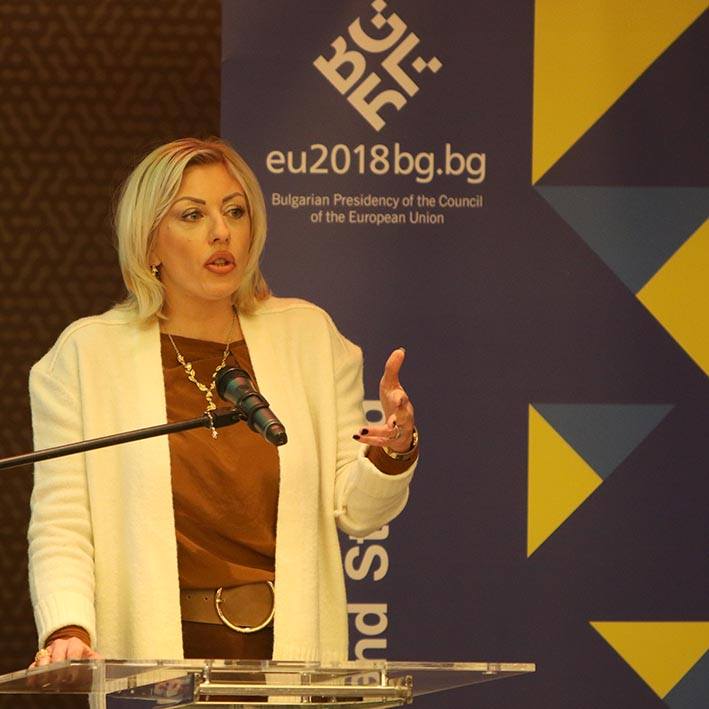
Antonio Ahel ATA IMAGES
Serbian Minister of European integration Jadranka Joksimovic said that 2018 would “provide a good framework for renewed EU accession negations,” pointing out that European integration gives the best possible economic, political and security framework for the stabilization of Serbia.
Joksimovic said that during Bulgarian Presidency progress reports on candidate countries would be published, EU-Western Balkans summit held, and the Berlin Process continued with a new London conference.
“A series of events will take place, redrawing the attention to the issue of enlargement to the Western Balkans,” Joksimovic said.
She reminded that the enlargement strategy would be adopted in February and added that she hoped the document would preserve “a positive note and spirit of the message” conveyed by the European Commission President Jean-Claude Juncker, stress the role of Serbia and Montenegro as frontrunners in the European integration process, offer a chance to other candidates from the region and provide a certain timeframe.
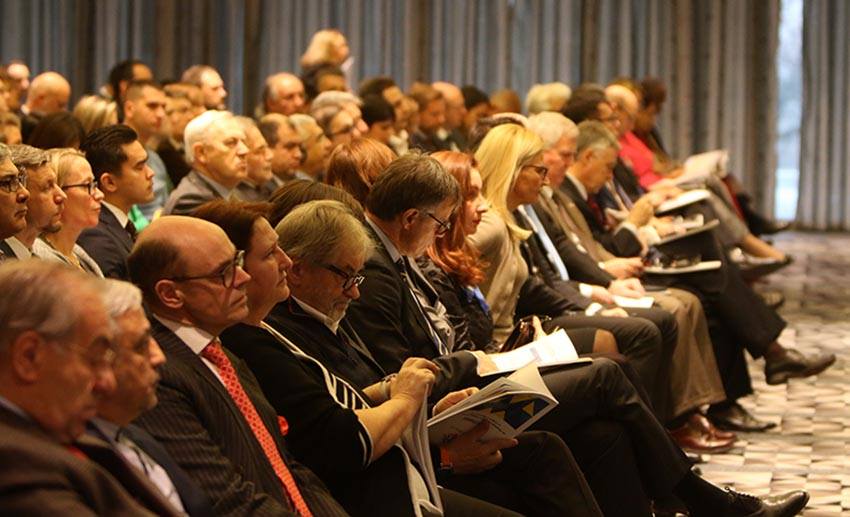
Antonio Ahel ATA IMAGES
Joksimovic said that Serbia had prepared three negotiating positions – for chapters 33 (financial and budgetary provisions), 13 (fisheries) and 9 (financial services) – adding that the country is working on the negotiating positions for chapters 18 and 4, i.e. statistics and free movement of capital.

